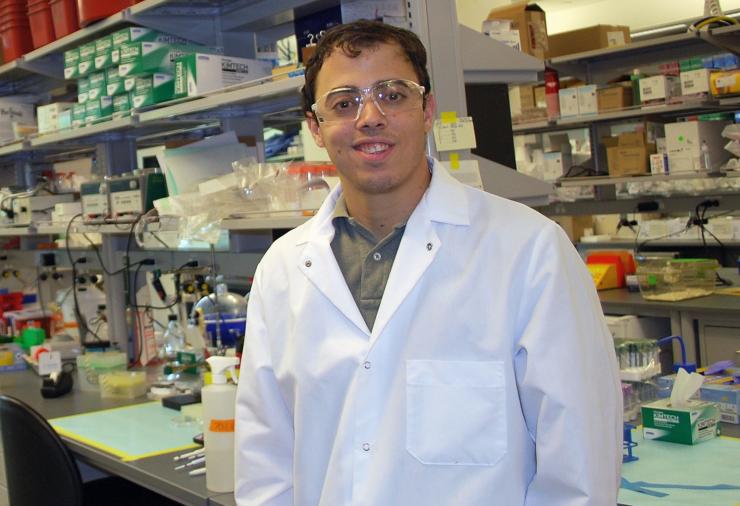Robert Mannino, a Ph.D. student in the Wallace H. Coulter Department of Biomedical Engineering (BME) at the Georgia Institute of Technology and Emory University, took top honors in competition for the 2017 Student Technology Prize for Primary Healthcare, held in Boston and hosted by Massachusetts General Hospital Ambulatory Practice of the Future.
The annual national competition encourages graduate and undergraduate engineering students to direct their creative skills toward the needs of primary care – innovations that have a substantial potential to improve the delivery of care, whether they be technologies, instrumentation, devices, or systems.
The technologies of particular interest improve access to medical care, leverage the skills of caregivers, automate routine tasks, increase workflow efficiency, support patients with chronic disease, increase compliance with protocols, reduce error, or augment the physician-patient relationship.
Mannino, who works in the lab of Wilbur Lam, associate professor of BME and a researcher in the Petit Institute for Bioengineering and Bioscience, won the $100,000 top prize. It will support his research, based on his Ph.D. dissertation, which he’ll defend this year. He’s developing a smartphone app to non-invasively diagnose anemia.
It’s research that hits close to home for Mannino, who was born with a rare genetic blood disorder, thalassemia major, which causes anemia and requires him to receive a blood transfusion every month. Basically, says Lam, “his Ph.D. is centered on developing new diagnostics for his own disease.”
He’s already completed an initial clinical assessment of the system, which uses smartphone photos of the patient’s fingernails for diagnosis.

<p><a href="mailto:jerry.grillo@ibb.gatech.edu">Jerry Grillo</a><br />Communications Officer II<br />Parker H. Petit Institute for<br />Bioengineering and Bioscience</p>
